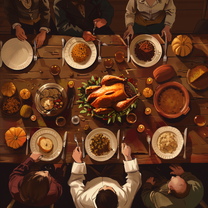William Bridge: The Puritan Barnabas
Posted by Brian G. Hedges on 19th Jul 2024
I once read the story of a poor woman from the slums of London who was invited to enjoy a holiday at the ocean. She had never seen the ocean and was overwhelmed with emotion. Her friends, surprised at her tears, asked why she was crying. She pointed to the massive body of water and said, “This is the only thing I have ever seen that there was enough of.”
That story is a fitting introduction to the seventeenth-century pastor William Bridge (1600–1671), who delighted to point poor, doubting sinners to the abundant ocean of God’s love. “Do you want assurance of God's love and of your own salvation?” Bridge asked in one of his sermons. Hear his advice: “Labor more and more for to put to sea—I mean, to the sea and ocean of God's love, and the deeps of Christ's merit and satisfaction.”
I first discovered William Bridge through his little book A Lifting Up for the Downcast. In one of the great masterpieces of Puritan casuistry, Bridge skillfully applies the balm of the gospel to discouraged believers. Over and again, Bridge persuades his readers that if they will only recognize God’s abundant grace in Christ, they have no reasons for discouragement or despair. Eventually, I was able to obtain a complete set of Bridge’s works—which were then out of print but have recently been republished by Banner of Truth. In reading Bridge over the years, he has become one of my favorite Puritan authors.
Not much is known of Bridge’s early life. Educated at Emmanuel College, a “nursery of Puritanism,” Bridge was eventually ordained a priest in the Church of England in 1627. In 1632, he became curate and lecturer at St. George Tombland, where he served for four years. In 1634, Bridge came under scrutiny for affirming limited atonement and condemning Arminianism. He was eventually excommunicated in 1636 by the Bishop of Norwich, Matthew Wren (1585–1667). Bridge then moved to Holland, where he renounced his ordination in the Church of England and began his ministerial labors as an Independent. In 1641, Bridge returned to England and became one of the most influential leaders of the Independent movement, serving as one of only ten Independent divines to sit in the Westminster Assembly.
I like to think of William Bridge as the puritan Barnabas. Like Barnabas, he is a “son of Encouragement” (Acts 4:36, NKJV). In Acts 11, Luke says of Barnabas, that “when he came, and had seen the grace of God, was glad, and exhorted them all, that with purpose of heart they would cleave unto the Lord. For he was a good man, and full of the Holy Ghost and of faith” (Acts 11:23–24a). Such could also be said of Bridge, one of the most deeply encouraging of all Puritan preachers.
Bridge’s sermons abound with powerful declarations of the fullness and sufficiency of God’s grace in Christ and personal exhortations to embrace God’s promises with faith. My new book, An Infinite Treasury: Grace in the Piety of William Bridge, highlights these themes with a selection of forty-five readings from Bridge’s Works.
The foundational conviction that lies at the heart of Bridge’s piety is the fullness of grace stored up for God’s people in and through the mediatorial work of Jesus Christ. Preaching from John 1:16, “And of his fullness have all we received, and grace for grace,” Bridge said, “There is an infinite treasury of grace and holiness in Jesus Christ, whereby He is able to supply and succor all those that are tempted.”
Of all the Puritans I have read, William Bridge most reminds me of Martin Luther (1483–1546) before him and Charles Spurgeon (1834–1892) after him. In fact, Bridge often quoted Luther in his messages. His sermons joyfully exulted in the finished work of Christ forcefully applied the fullness of Christ’s work to all the exigencies of the soul, and powerfully exuded the sweet fragrance of gospel holiness. His preaching revealed the tender heart of a shepherd for his sheep as he led them into the fertile pastures of God’s redemptive grace given in Christ.
Those who take time to feed in these pastures will find their minds illumined by God’s Word and Spirit, their souls strengthened by God’s grace, and their hearts drawn to God’s Son, our Lord and Savior, Jesus Christ.
